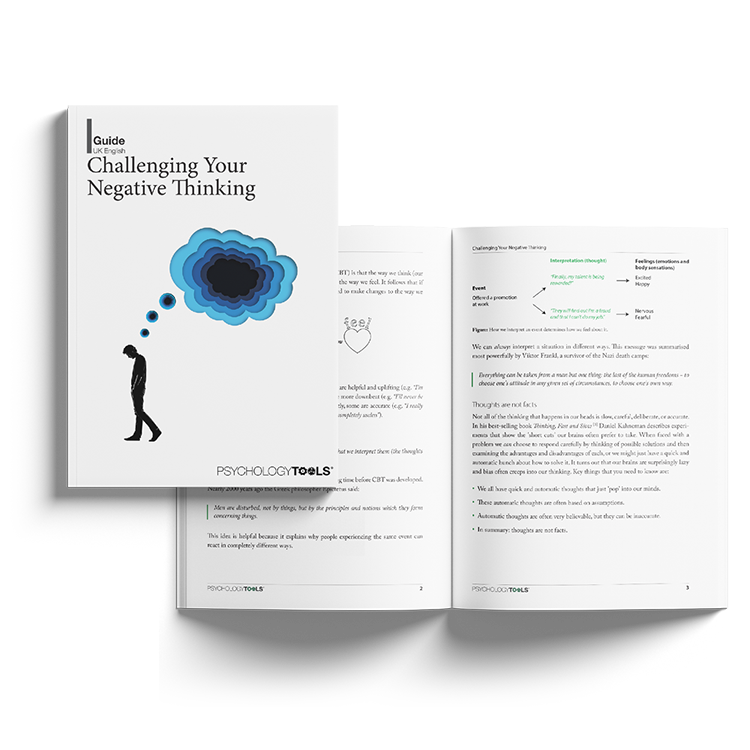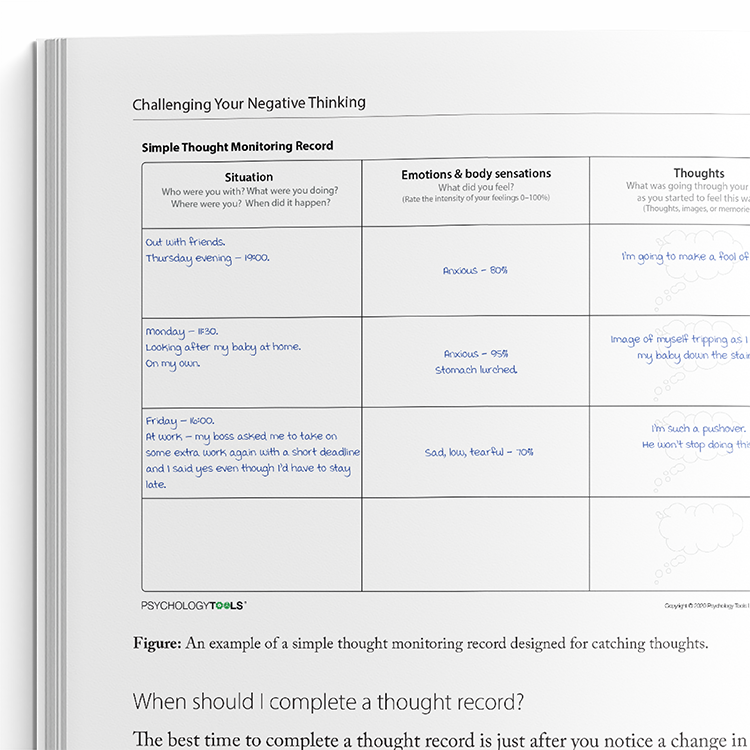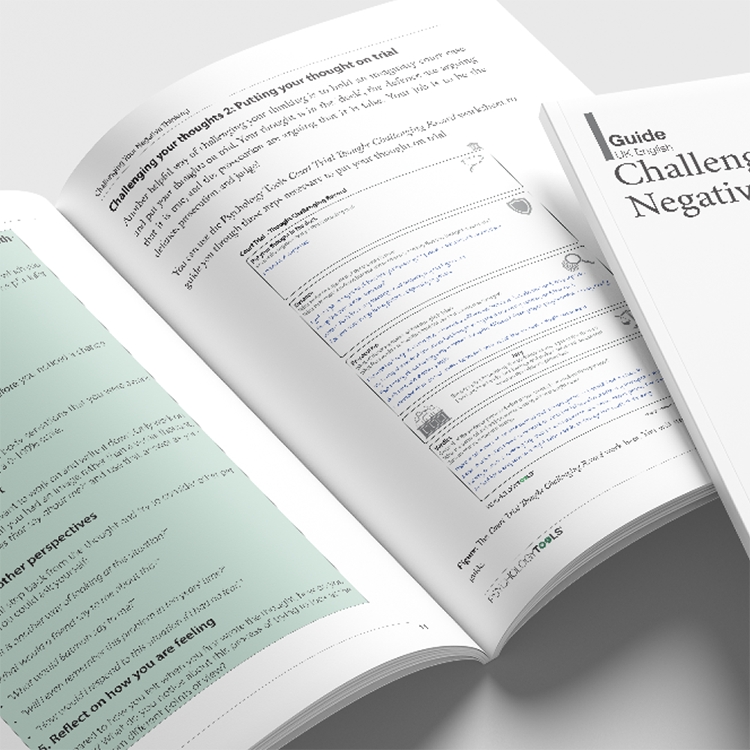Guide (PDF)
A psychoeducational guide. Typically containing elements of skills development.
Help your clients recognize, examine, and restructure their negative thinking patterns with this skills-development guide.

A psychoeducational guide. Typically containing elements of skills development.
To use this feature you must be signed in to an active account on the Advanced or Complete plans.

Challenging Your Negative Thinking is a comprehensive guide designed to help clients address negative automatic thoughts. Using cognitive behavioral therapy (CBT) principles, this resource equips clients with the skills they need understand the impact of their thoughts on emotions and behaviors. Through various strategies like thought monitoring, perspective-taking, and cognitive restructuring, this guide helps them to move toward more balanced and helpful thinking.
Understanding how to effectively manage unhelpful or distorted thoughts is a cornerstone of cognitive behavioral therapy.
Address and alter catastrophic thinking patterns.
Challenge pervasive negative self-evaluations.
Facilitate more balanced self-perceptions.
Cognitive work is suitable for many client presentations.
Explain how thoughts influence emotions and behaviors, and how cognitive restructuring can support change.
Work through one or two examples together to show how to identify, evaluate, and challenge negative thoughts.
Assign specific exercises or worksheets for the client to complete between sessions, based on their needs.
Use time in therapy to review completed worksheets, reinforce learning, and troubleshoot difficulties.
Encourage clients to use the guide as a self-help tool between sessions, building confidence and autonomy in applying CBT techniques.
The foundation of this guide lies in the cognitive-behavioral therapy model, which proposes that our thoughts significantly influence our emotions and behaviors. Beck's Cognitive Therapy of Depression emphasizes how cognitive restructuring can alleviate depressive symptoms by addressing unhelpful automatic thoughts and replacing them with more accurate or helpful interpretations.
This guide draws on historical philosophical insights and contemporary psychological theories, highlighting that it's not merely the events causing distress but the interpretation of these events. Resources within the guide, such as the Thought Monitoring Record, are designed to facilitate therapists in guiding clients through identifying, challenging, and restructuring their cognitive distortions.

Just enter your name and email address, and we'll send you Challenging Your Negative Thinking (Archived) (English US) straight to your inbox. You'll also receive occasional product update emails wth evidence-based tools, clinical resources, and the latest psychological research.
Working...
This site uses strictly necessary cookies to function. We do not use cookies for analytics, marketing, or tracking purposes. By clicking “OK”, you agree to the use of these essential cookies. Read our Cookie Policy